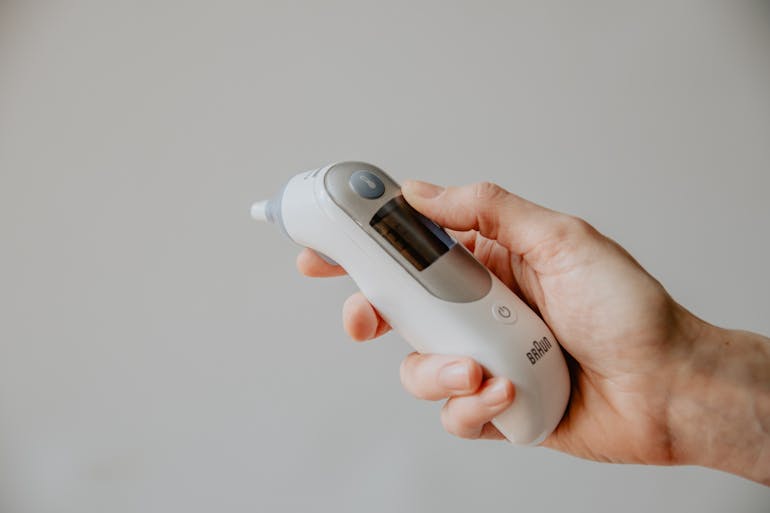Your Coronavirus (COVID-19) questions answered
Reviewed and fact-checked by Giulia Guerrini, Superintendent Pharmacist. Read our editorial policy to see how we create informative, accurate content.
- How does the virus spread?
- Will Warm Weather stop the virus?
- What are the key symptoms?
- Can Someone Who's Infected Spread Coronavirus (COVID-19) if They Don't Have Symptoms?
- Are children at risk of COVID-19?
- Can Pets Get Coronavirus (COVID-19)?
- Who Should Wear a Face Mask?
- What Should I Do if a Family Member Has Symptoms of Coronavirus (COVID-19)?
- How Do I Get Tested for Coronavirus (COVID-19)?
- How Can We Protect Ourselves From Coronavirus (COVID-19)?
- How Is Coronavirus (COVID-19) Treated?
- Should We Cancel Our Travel Plans Due to Coronavirus (COVID-19)?
- What Is the Future of Coronavirus (COVID-19)?
- Which hand sanitisers work on Covid-19?
">How does the virus spread?
It seems now that cases of COVID-19 are spreading through the community in the UK. Community spread means that those who are infected may not have been to any key locations with high infection rates and have instead passed the virus through contact with people in their local area.
">Will Warm Weather stop the virus?
The virus appeared during the winter so it’s not been determined yet as to whether warm weather will stop the virus. Some viruses, such as those that cause the common cold and flu, spread during the cold months much faster and infection rates tend to decrease when the weather warms up. There’s hope that warmer weather will curb the spread but there’s still a lot to learn about the transmissibility, severity and other features associated with COVID-19.
">What are the key symptoms?
There have been a lot of different symptoms reported by those with confirmed cases. These symptoms have ranged from mild to severe but the following symptoms are the key ones to watch out for:
- Fever
- Cough
- Shortness of breath
Some people may also experience aches and pains, nasal congestion, a runny nose, sore throat or diarrhoea.
">Can Someone Who's Infected Spread Coronavirus (COVID-19) if They Don't Have Symptoms?
The virus is known to spread most easily when there are symptoms. However, it is possible that the virus can spread before symptoms are present. The virus has an incubation period of 2 - 14 days which means that it can take a while after someone is exposed to the virus for symptoms to show up.
">Are children at risk of COVID-19?
The symptoms tend to be more mild in children when compared to adults and older people. There have been a number of cases in children but the symptoms have been comparatively milder.
">Can Pets Get Coronavirus (COVID-19)?
There have been reports of pets carrying the virus, and even one reported death but this isn’t confirmed. Experts don't know if cats, dogs, and other pets can catch the virus. If you need to care for a pet whilst you’re sick, it’s a good idea to continue to take the same precautions as normal such as washing your hands and wearing a face mask.
">Who Should Wear a Face Mask?
You should wear a face mask if:
- You are taking care of someone who is (or might be) infected with coronavirus.
- You are coughing or sneezing.
- You have coronavirus or have been tested for coronavirus.
- You are a health care provider.
">What Should I Do if a Family Member Has Symptoms of Coronavirus (COVID-19)?
The symptoms of COVID-19 can look a lot like illnesses from other viruses. If you suspect someone in your family has the virus, be it symptoms such as a fever or cough, it’s a good idea to call NHS 111 and they can decide as to whether they should be treated at home or if they should visit the GP or hospital. It’s a good idea to go into self-isolation for at least 7 days if any of the symptoms are experienced in your family.
">How Do I Get Tested for Coronavirus (COVID-19)?
At the moment tests can only be done by appointment by calling NHS 111 if you are suspected to have the virus. To test someone for coronavirus, doctors send a mucus sample from the nose and back of the throat to a lab.
">How Can We Protect Ourselves From Coronavirus (COVID-19)?
There are a number of ways you can protect yourself and your family:
- Avoid people who are showing symptoms
- Try to stay at least a metre away from someone who is coughing or sneezing.
- Wash your hands well and often. Wash for at least 20 seconds with soap and water or use hand sanitizer with at least 60% alcohol.
- Try not to touch your eyes, nose, and mouth.
- Wipe down any high touch surfaces like door handles or kitchen counter tops.
- Avoid taking public transport or any busy public spaces.
">How Is Coronavirus (COVID-19) Treated?
Currently, there's no vaccine for coronavirus. Most people who have been infected with the illness get better with rest and fluids. People with severe symptoms may have to be admitted to hospital for help with breathing. Paracetamol has also been recommended to help to relieve any symptoms associated with the virus.
Vaccines are currently being trialled but this may take some time before they’re widely available.
">Should We Cancel Our Travel Plans Due to Coronavirus (COVID-19)?
Non-essential travel is not recommended. A number of flights and events have been cancelled so it’s best to check before going to anything as there’s a high likelihood plans may have to be cancelled.
">What Is the Future of Coronavirus (COVID-19)?
There are a number of things which may influence what happens in the near future:
- how effective areas are at controlling its spread
- how long it takes to develop medicines to treat coronavirus
- how long it takes to develop a COVID-19 vaccine
">Which hand sanitisers work on Covid-19?
You should wash your hands with soap and water for at least 20 seconds to avoid catching or spreading the virus, and you should use hand sanitiser gel if soap and water aren’t available. Hand sanitisers with at least 60% alcohol content is the most effective.
Hand sanitisers do work against viruses. They are effective as the virus that causes Covid-19 has a lipid envelope, which has been proven to be susceptible to sanitisers with a high percentage of alcohol.

